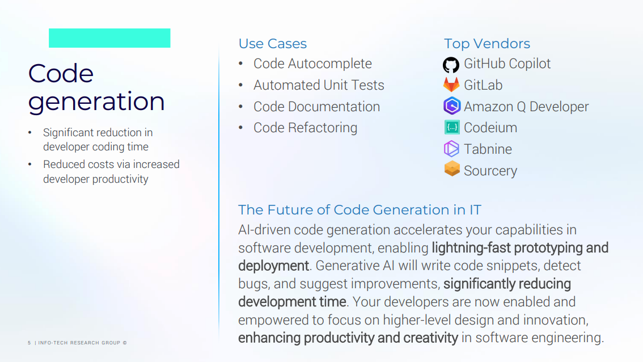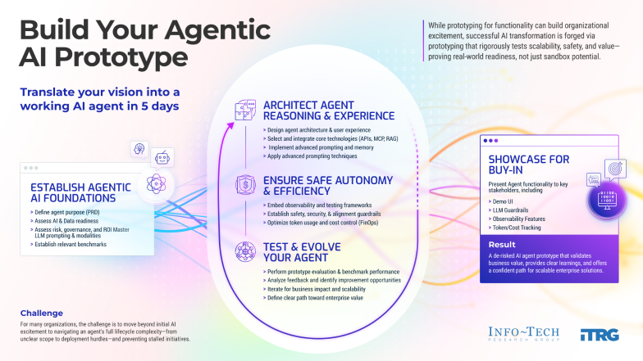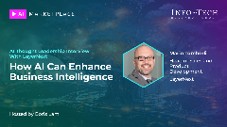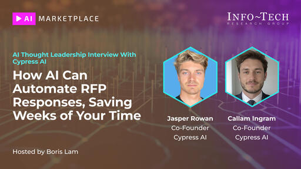The latest legal rulings for using copyrighted data for training AI models, lawsuits in the entertainment industry surrounding copyright, proposed legislation for personal copyright to fight deepfakes, AI regulations around the world, and the latest developments in AI-generated music from an AI-generated band.
AI Transformation Brief
VOL 2 NO 7 | JULY 2025
Featuring AI best practices and insights to enable our members to strategize, plan, develop, deploy, manage, and govern AI-based technologies and solutions.
In This Issue → AI in the News | AI Research Highlights | Vendor Spotlight | Upcoming Events & Resources
AI IN THE NEWS
US judges rule that LLMs can leverage copyrighted content for training
|
On June 24, 2025, a US federal judge in San Francisco ruled that Anthropic's use of lawfully acquired books to train its artificial intelligence system without permission was legal under US copyright law. Also, on June 25, 2025, another US judge ruled that Meta’s use of copyrighted content was allowable for AI training purposes. |
ANALYST ANALYSIS Lawsuits focused on copyright infringement have been launched against numerous AI vendors, including OpenAI, Google, Anthropic, Microsoft, Meta, Stability AI, and Midjourney. AI vendors often argue that their use of copyrighted content should be allowable under the concept of fair use. Specifically, they argue that the data ingested is used to enable the model to generate new and transformed content, not merely a copy. In addition, the training data is used to create a “knowledge graph,” not to re-present the original expressive content. Neither the Anthropic nor the Meta ruling addresses the question of whether AI-generated content can infringe copyright or be copyrighted. While these two recent rulings are among the first to address fair use, they will not be the last ruling on AI and copyright. |
Disney and Universal launch lawsuit against Midjourney
Read the Hollywood Reporter article
|
On June 11, 2025, Disney and Universal launched a copyright lawsuit against Midjourney. This is the first time major Hollywood studios have jointly pursued legal action against an AI vendor. The studios have characterized Midjourney, an image generator, as a “bottomless pit of plagiarism.” Damages sought by Disney and Universal start at $150,000 per infringing work. This figure can reach $15 million or more if just 100 instances are proven in court. Damages will also be sought against profits made due to copyright infringement. |
ANALYST ANALYSIS The 110-page lawsuit filed against Midjourney include the following demands from Disney and Universal:
Given the recent Anthropic and Meta rulings on the fair use of copyrighted material, the lawsuit may only have an impact on the images generated that infringe copyright. |
Denmark introduces copyright laws to grant its citizens rights over their face, body, and voice to combat deepfakes
|
On June 26, 2025, Denmark’s Ministry of Culture announced its intentions to amend the Danish Copyright Act. The amendment will grant every citizen the right to own their facial features, voice, and body to fight against deepfakes. |
ANALYST ANALYSIS The proposed Danish bill would set a landmark in granting citizens control over their digital likeness. The proposed legislation, which is receiving support across all political parties, is also receiving a lot of interest as a possible template for introducing digital rights in other countries. This could inspire other countries to adopt similar safeguards to create a more secure, private, and responsible digital environment for all citizens. The bill is expected to pass with up to 90% parliamentary approval. The final amendment is anticipated to be passed by the end of 2025 or early 2026. |
Velvet Sundown – the world’s greatest AI band (so far)
Read the Rolling Stone article
|
On June 4, 2025, the band Velvet Sundown posted their first album, “Floating on Echoes,” on Spotify. This was followed by their second album, “Dust and Silence” on June 19, 2025. Controversy surrounded the band as people suspected and accused the band and the music of being AI-generated. Initially, representatives of the band denied claims of being AI, which sparked intensive and exhaustive examinations of the music, the band, and individual members of the band. |
ANALYST ANALYSIS In a little over one month, Velvet Sundown’s music reached over 1 million monthly streams on Spotify. Clever placement of the band’s songs on popular playlists, the mystery over whether the band was real or not, and Spotify’s AI algorithms all contributed to making Velvet Sundown the most popular AI band in history. It’s still a mystery who is behind this experiment and what their motives are. I listened to the top five tracks and found the music unremarkable but easy to listen to as background music. If this is the future of music, the winners will likely be the streaming platforms, which will benefit from cheaper content creation. Unfortunately, the likely losers will be the human musicians. |
Murky AI rules leave enterprises grappling with self-regulation
|
On July 10, 2025, The Daily Upside published an article focused on AI regulations based on an interview I had with their lead reporter, Nat Rubio-Licht. The conversation centered on the EU AI Act and the current state of AI regulations around the world. The EU AI Act provides a guide on how to classify AI risks and how to build the safeguards needed to address the potential risks introduced by AI. In contrast, the UK and the US promote polices, rather than legislation, to provide guidance. |
ANALYST ANALYSIS In jurisdictions around the world, there are ongoing discussions about how best to accelerate AI innovation and how to ensure that this technology will not harm the population. The best practice from the leading adopters of AI is to self-regulate by introducing an AI risk management system to address the potential risks (such as hallucinations, bias, deepfakes) introduced by AI applications. Rather than legislate the AI technology itself, it is more practical to regulate how the technology is used. For instance, computer vision in drones represents marginal risk when used as a novelty item by consumers. However, the same technology could be used for mass surveillance, which is categorized as an unacceptable risk by the EU AI Act. While some companies may argue that legislation and innovation cannot coexist, we believe that organizations can successfully innovate with AI while also considering safety without falling behind. In the end, this will benefit both organizations and the clients they serve. |
AI RESEARCH HIGHLIGHTS
The AI Vendor Landscape in IT
New!

Source: The AI Vendor Landscape in IT
Info-Tech Research Group
The Rise of AI Agents
New!

Source: The Rise of AI Agents
Info-Tech Research Group
VENDOR SPOTLIGHT
AI Marketplace
Unlock the potential of AI tailored to your needs and transform possibilities into reality with our dedicated support.
|
|
|
|
|
Cypress AI: How AI Can Automate RFP Responses, Saving Weeks of Your Time |
UPCOMING AND RECENT EVENTS
|
IGNITE Event Washington, D.C., September 10, 2025 SnT 2025Vienna, Austria, September 9-12, 2025 AI Roundtable Zurich, Switzerland, September 15, 2025 |
AI Roundtable London, England, September 17-18, 2025 IGNITE Event Dallas, TX, September 23, 2025 LIVE Barcelona Barcelona, Spain, October 21-11, 2025 |
AI AND DATA ANALYTICS SOLUTIONS – RESOURCES
|
AI Strategy Workshop AI Proof of Value Workshop AI MLOps Workshop AI Governance Workshop |
|
|
AI EDITOR-IN-CHIEF Bill Wong – Info-Tech AI Research Fellow |








